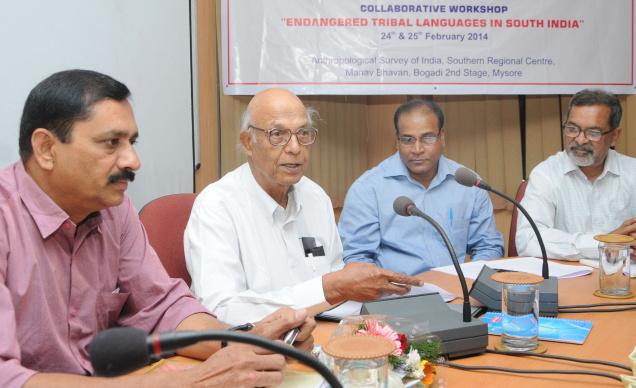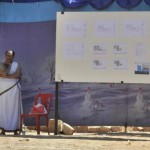 The Central Institute of Indian Languages (CIIL) here will embark on a mega project to document nearly 500 endangered languages in the country, each spoken by less than 10,000 people.
The Central Institute of Indian Languages (CIIL) here will embark on a mega project to document nearly 500 endangered languages in the country, each spoken by less than 10,000 people.
It has been approved in principle by the Ministry of Human Resource Development. The CIIL will collaborate with universities and institutes.
Speaking to The Hindu on the sidelines of a two-day workshop on ‘Endangered tribal languages in south India’, organised by the Anthropological Society of India and the CIIL, L. Ramamoorthy, Head, Linguistic Data Consortium for Indian Languages, CIIL, said on Monday that the work would be taken up under a scheme to preserve and protect endangered languages.
The objective is to bring out dictionaries and also document and preserve the ethnic knowledge system enshrined in the languages, including folklore. It also intends to frame grammar rules. Experts would give suggestions for the revitalisation of these languages.
About 70 languages from different parts of the country would be studied in the first phase and 500 would be taken up in a span of 10 years, Mr. Ramamoorthy said. The study and documentation of each language would cost between Rs. 6 lakh and Rs. 8 lakh, he added.
Earlier, Dr. Ramamoorthy spoke on ‘Endangered tribal languages – initiatives from the CIIL’. Referring to the above project, he said there was no consensus on the status of endangered languages. While the Census of India 2001 pegged the number at 122, the Anthropological Survey of India put it at 323, while a UNESCO report said 196 Indian languages were endangered. He hoped the workshop would come out with tools and parameters to identify an endangered language.
Lawrence Surendra, Senior Fellow, Indian Council of Social Science Research, delivered a special lecture on endangered tribal languages and cultures and pointed out that endangerment of language was far more serious than that of culture because with the extinction of language, the entire encyclopaedia of knowledge enshrined in that language would be lost forever.
P.K. Misra, president, Anthropological Association, Mysore, inaugurated the workshop and said the status of language should be understood in the context of society and culture which were not static but under constant change. Citing the example of Jenu Kuruba community, Prof. Misra said changing external environmental factors had affected the traditional lifestyle of the tribal people.
C.R. Satyanarayana, deputy director and head, ASI Southern Regional Centre, subject experts from different universities and institutions are attending the workshop.

